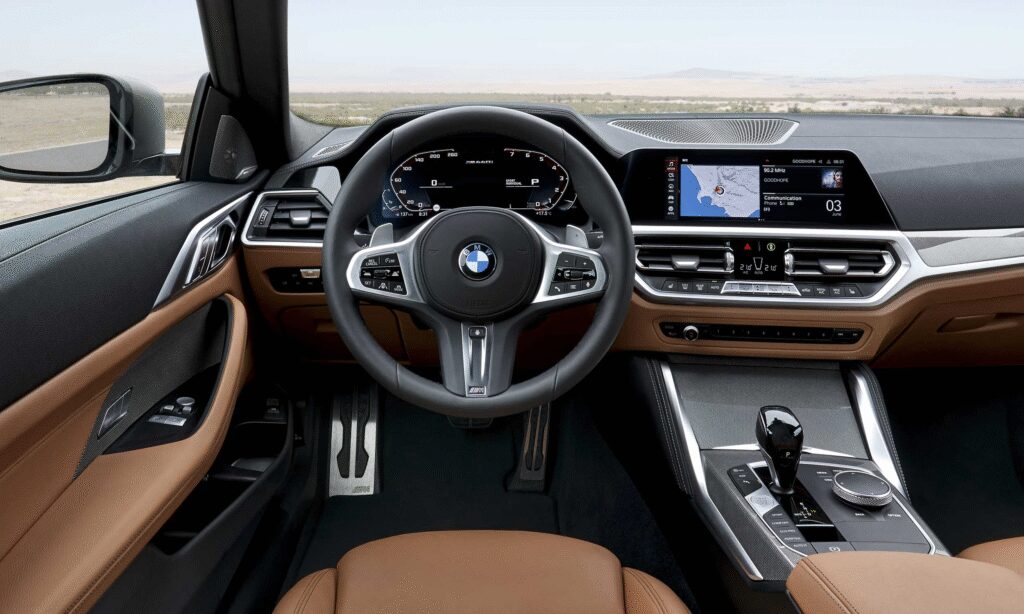If you spend hours on the motorway — commuting, road-tripping or clocking up fleet miles — you’ll already know this: not all electric cars are built for it.
In 2025, plenty of EVs look great in the brochure but fall apart where it really counts — noisy above 70, jumpy cruise control and a battery that empties faster than a teenager’s bank account.
As a mechanic and highway test consultant, I’ve logged thousands of miles checking what actually makes a good long-distance EV. Not in a lab. Not crawling through city streets. On proper roads. At proper speeds.
So here are the best electric cars for motorway driving in 2025 — picked for comfort, quietness, safety, and keeping your range steady when you’re sat at 70 all morning.
🚗 What Makes an EV Great for the Motorway?
A good highway EV needs to nail these:
✅ Quiet cabin at speed — think acoustic glass, tight seals, proper soundproofing
✅ Range that doesn’t collapse at 70–80 mph
✅ Comfy seats and suspension that don’t leave you aching after an hour
✅ Smooth adaptive cruise control and lane keep that don’t jerk you about
✅ A battery cooling system that keeps power steady all day
🏆 The Best EVs for Long Motorway Journeys
1. Tesla Model Y Long Range – The Highway Workhorse
Why It Works
It’s quick, predictable and surprisingly quiet for an SUV.
Tesla’s Autopilot shines on long stretches, keeping you centred and smooth.
And the range prediction is actually accurate.
Real Highway Range: ~290–310 miles
Cabin Noise @ 70 mph: 65–67 dB
Adaptive Cruise: 9/10
Price: ~£38,000
👨🔧 Mechanic’s Notes:
Tends to eat through tyres if you hammer it.
Battery cooling is excellent.
Barely any breakdowns once tyres are sorted.
2. Hyundai Ioniq 6 SE Long Range – The Glide Machine
Why It Works
One of the most aerodynamic cars out there.
Sips energy even at speed.
Cabin stays eerily quiet.
Hyundai’s Highway Driving Assist 2 is a joy to use.
Real Highway Range: ~290–305 miles
Cabin Noise @ 70 mph: ~64 dB
Adaptive Cruise: 9.5/10
Price: ~£36,000
👨🔧 Mechanic’s Notes:
Ride quality is soft but controlled.
Battery and cooling system hold up beautifully on long runs.
Feels more like a luxury saloon than its price suggests.
3. BMW i4 eDrive40 – The Grand Tourer
Why It Works
Feels properly built for long distances.
Superb insulation.
Seats you can sit in all day without complaining.
Lane control is precise and subtle.
Real Highway Range: ~285 miles
Cabin Noise @ 70 mph: ~63–64 dB
Adaptive Cruise: 8.5/10
Price: ~£41,000
👨🔧 Mechanic’s Notes:
Drives like an old-school BMW but with batteries.
Not much space in the back or boot though.
Still one of the most comfortable highway EVs you can buy.
4. Kia EV6 Wind AWD – The All-Rounder
Why It Works
Good stability, smooth driver assist, and excellent seats.
Does everything well without shouting about it.
Rear noise insulation is better than you’d expect.
Real Highway Range: ~260–280 miles
Cabin Noise @ 70 mph: ~65 dB
Adaptive Cruise: 8.5/10
Price: ~£38,000
👨🔧 Mechanic’s Notes:
Handles rough lanes without wandering.
Battery cooling copes fine even on hot days.
One of the easiest to own and maintain.
5. BYD Seal Premium – The Quiet Contender
Why It Works
Blade Battery, quiet cabin and an accurate range meter.
Drives as confidently as anything twice the price.
Driver assistance keeps improving with each update.
Real Highway Range: ~270–285 miles
Cabin Noise @ 70 mph: ~66 dB
Adaptive Cruise: 8/10
Price: ~£35,000 (EU)
👨🔧 Mechanic’s Notes:
Cabin finish rivals Hyundai.
Cooling is solid and battery stays healthy even after long trips.
Software’s not perfect yet but keeps getting better.
6. Volvo EX30 Twin Motor Ultra – The Small Giant
Why It Works
Tiny footprint but big on comfort and safety.
Cabin is well put together and impressively quiet.
Volvo’s Pilot Assist is smooth and reassuring.
Real Highway Range: ~240–255 miles
Cabin Noise @ 70 mph: ~63–64 dB
Adaptive Cruise: 9/10
Price: ~£36,000
👨🔧 Mechanic’s Notes:
Build quality shows.
Only downside — battery cooling struggles a little if you’re hammering it all day.
Still punches above its weight on the motorway.
📊 Quick Comparison Table
| Model | Real Range | Cabin Noise (dB) | Adaptive Cruise | Price |
|---|---|---|---|---|
| Tesla Model Y | ~290–310 | 65–67 | 9/10 | ~£38K |
| Hyundai Ioniq 6 | ~290–305 | ~64 | 9.5/10 | ~£36K |
| BMW i4 | ~285 | ~63–64 | 8.5/10 | ~£41K |
| Kia EV6 Wind | ~260–280 | ~65 | 8.5/10 | ~£38K |
| BYD Seal Premium | ~270–285 | ~66 | 8/10 | ~£35K |
| Volvo EX30 Ultra | ~240–255 | ~63–64 | 9/10 | ~£36K |
👨🔧 My Top Highway Tips for EV Drivers
✔ Precondition your battery before you set off — especially in winter.
✔ Use cruise control — keeps your speed steady and saves range.
✔ Keep tyres properly inflated — stops road noise and helps efficiency.
✔ Don’t charge to 100% unless you need it — better for battery health.
✔ Wipe your sensors clean — lane assist and cruise rely on them.
Final Word From the Garage
The right EV can make a long motorway run feel effortless — quiet, comfy, and with no nasty range surprises.
If you’re doing serious miles, don’t just look at the headline range figure.
Check how quiet it is at speed, how the seats feel after an hour, and how smoothly the cruise control handles itself.
For all-round motorway comfort → Hyundai Ioniq 6 or BMW i4
For maximum range and tech → Tesla Model Y
For small and safe → Volvo EX30
For value with a solid battery → BYD Seal
Pick one that suits your driving, not just what looks good in a YouTube review — your back (and your ears) will thank you later.
